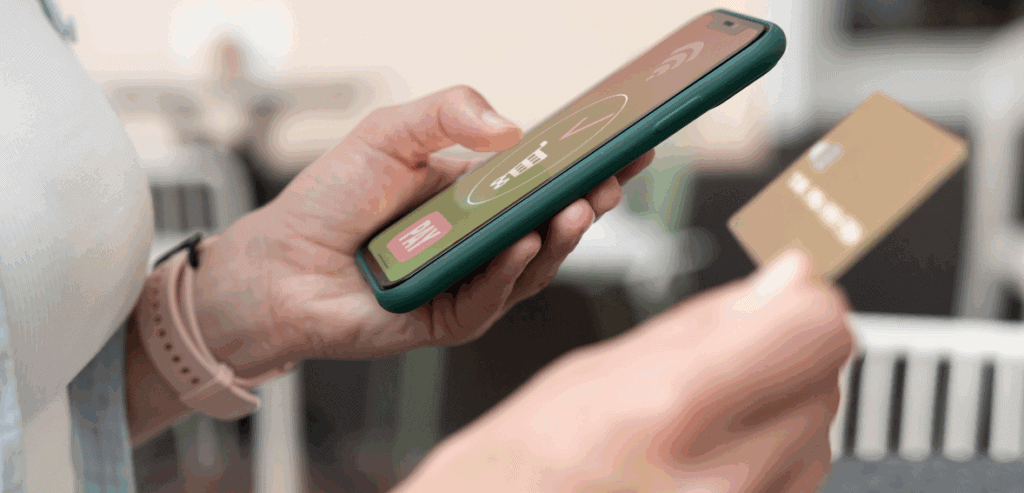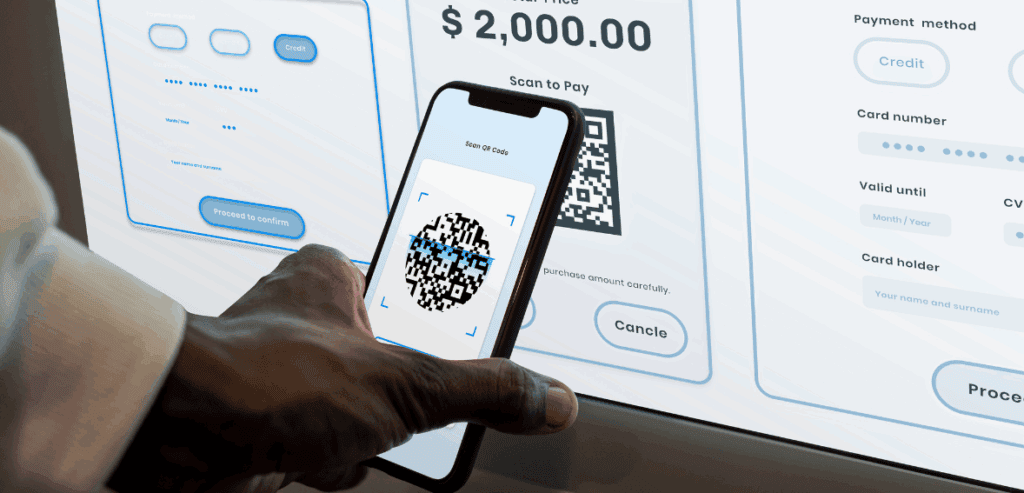
By Sharon Hudson July 9, 2025
Boutique hotels have long stood apart from larger chains by offering a more personalized and intimate guest experience. While style, design, and curated amenities have historically defined their charm, a new differentiator is gaining importance in 2025: digital payments. The way guests pay before, during, and after their stay has become an integral part of the overall hospitality experience.
The shift from traditional to digital payment is not just a matter of convenience. It’s influencing everything from guest expectations and loyalty to how hotels manage operations and build revenue models. In the boutique segment, where every touchpoint counts, embracing payment innovation is no longer a luxury, it’s essential for staying competitive.
Mobile Wallets and Contactless Options as the New Norm

Mobile wallets and contactless payments have become a staple in the post-pandemic hospitality environment. Boutique hotel guests, especially millennials and Gen Z travelers, increasingly expect seamless, secure, and hygienic payment methods.
Growing Use of Digital Wallets
Many guests now arrive with Apple Pay, Google Pay, or Samsung Pay enabled on their devices. They prefer quick tap-and-go transactions at the front desk, in-room dining services, or even for tipping staff. For international travelers, digital wallets also reduce the need to carry local currency or deal with exchange rates.
Contactless for Check-In and Check-Out
Hotels have begun integrating payment gateways directly into their mobile apps, allowing guests to complete check-in before arrival. Similarly, check-out can be handled via a secure payment link, eliminating the need to queue at the reception. These enhancements reduce friction and increase perceived value, which is especially crucial in boutique hotels where staff attention is already a premium.
In-Room and On-Site Integration
Contactless payments are extending beyond the front desk. Boutique properties are implementing NFC-enabled devices or QR codes in mini-bars, spas, and restaurants. Guests can pay instantly, and the amount is synced with their profile, contributing to a more fluid and personalized stay.
Personalized Upselling Through Digital Payments
Boutique hotels thrive on personalization, and digital payments now allow them to tailor upselling opportunities with precision. Gone are the days of generic offers and front desk pitches. With integrated payment systems, hotels can offer curated add-ons in-app or through emails, which guests can accept and pay for instantly.
Targeted Offerings
By analyzing past guest behavior and payment patterns, hotels can identify which guests are more likely to book a private yoga session or opt for a wine tasting. These offers are sent through the booking portal or app, where one-click payments make the process effortless.
Real-Time Promotions
Some boutique hotels now employ real-time promotional offers triggered by location or time of day. A push notification might alert a guest that the rooftop bar has a happy hour starting in 10 minutes. With a single click, the guest can reserve a table and pre-pay or authorize charges to their room.
Revenue Boost with Flexibility
Not only does this increase revenue, but it also builds trust by giving the guest more control. The convenience of cashless micro-transactions encourages higher engagement and a more immersive experience without disrupting the guest’s flow.
Loyalty Programs Reinvented with Fintech
Loyalty in the boutique segment used to be driven by charm, ambiance, and personalized service. Today, digital payment technologies are making it easier to create rewards systems that are both appealing and frictionless.
Tokenized Rewards and Instant Redemption
Modern boutique hotels are moving toward tokenized or point-based reward systems that work in real-time. Points are automatically credited when guests make a purchase through the hotel app or POS system. Redeeming them does not require logging into another platform—guests can use them during their stay for anything from spa credits to room upgrades.
Integrated Payment-Loyalty Ecosystems
Fintech platforms now allow hotels to integrate loyalty directly into the payment flow. When a guest pays for dinner, the receipt shows how many points were earned and how many are available for use. This immediate feedback loop fosters ongoing interaction with the brand.
Third-Party Partnerships
Some boutique hotels have partnered with cafes, galleries, and local stores to create a wider loyalty network. Guests paying digitally can earn or use points outside the hotel premises, turning the boutique stay into a broader lifestyle experience.
Enhancing International Guest Comfort
One of the longstanding challenges in hospitality has been dealing with the varied payment preferences of international travelers. Digital payment systems are breaking down these barriers and giving boutique hotels an edge in attracting global clientele.
Multicurrency and Multilingual Support
Payment gateways now support multiple currencies and automatically detect the guest’s location or language preferences. This eliminates confusion at checkout and avoids hidden fees, making international guests feel more at ease.
Digital Tax Compliance
Integrated digital payments also assist with automatically calculating and displaying local taxes and fees upfront. This transparency is especially appreciated by business travelers who require detailed invoices or tax documentation.
Instant Conversion Rates and Receipts
Some boutique hotels offer real-time currency conversion at the point of payment. Guests can choose whether to pay in local or home currency with full clarity. Receipts are emailed instantly with all payment details in their preferred language, streamlining the process for non-native guests.
Reducing Staff Workload with Smart Payment Systems
For boutique hotels operating with lean teams, automation through digital payments is a major relief. From reducing errors to freeing up staff time, smart payment systems directly contribute to smoother operations and better guest satisfaction.
Automation of Repetitive Tasks

Tasks like invoice generation, payment reconciliation, and reporting are handled by the payment platform. Staff can focus more on engaging with guests rather than administrative duties. Real-time dashboards allow managers to monitor transactions without waiting for end-of-day reports.
Fewer Manual Errors
Since transactions are automatically logged and linked with room numbers or guest profiles, chances of mischarges or duplicate entries are reduced. Refunds or adjustments can also be processed faster and more transparently.
Streamlined Tipping and Gratuities
Some hotels have adopted digital tipping systems where guests can tip via QR code or app, specifying the staff member. This removes the awkwardness of cash tips and ensures fair distribution, especially for back-end staff who are often overlooked.
Secure Payments Build Trust
Security is non-negotiable in the hospitality industry. Boutique hotels, which rely on trust and intimacy, cannot afford lapses in data protection. Digital payment systems now offer enhanced security features that protect both the hotel and the guest.
Encryption and Tokenization
Modern payment systems use tokenization to ensure card data is never stored directly by the hotel. This reduces the risk of breaches and builds confidence among digitally savvy guests.
3D Secure and Biometric Authentication
Boutique hotels are increasingly adopting multi-layered authentication such as 3D Secure or biometric verification through the guest’s mobile device. This adds an extra layer of protection during high-value transactions like long stays or group bookings.
Compliance with Global Standards
Many boutique properties are using payment platforms that are PCI-DSS compliant and regularly audited for fraud detection. This commitment to secure payments becomes part of the brand’s value proposition, especially for privacy-conscious travelers.
Catering to Gen Z and Millennial Guests
Gen Z and millennials are not just tech-literate, they’re digital natives. These guests expect fluid interactions where technology fades into the background. For them, payment is not just about closing a transaction, but part of the overall brand experience.
Seamless Omnichannel Flow
Whether the guest booked through a mobile app, a desktop site, or a social media campaign, the payment experience must feel cohesive. Hotels that enable guests to book, check in, access the room, and pay using a single ecosystem stand out to younger audiences.
Integrating with Social and Influencer Platforms
Many boutique hotels are offering booking or gifting options via Instagram, WhatsApp, or even TikTok integrations. Guests can book and pay directly from these platforms, blending commerce with content in a way that resonates with digital-first consumers.
Eco-Conscious Digital Receipts
Gen Z guests appreciate sustainability. Offering email receipts or carbon-neutral payment partners can appeal to eco-aware travelers. This small step reinforces the hotel’s brand values and commitment to a better world.
Dynamic Pricing and Flexible Payments
Digital payment systems also unlock more advanced pricing models and flexibility in how guests pay. This can be a competitive advantage for boutique hotels with varied seasonal traffic and unique room categories.
Pay-What-You-Use Add-Ons

Rather than offering bundled packages, some hotels are allowing guests to choose services a la carte and pay for only what they use. This flexibility is enabled by real-time payment tracking and mobile authorization tools.
Split Payments and Group Stays
Payment systems now allow for easy splitting of bills between guests or for group bookings. Whether it’s a wedding party or friends on a weekend trip, everyone can pay their share without confusion, reducing the strain on front desk operations.
Buy Now, Pay Later Options
Some boutique hotels are beginning to experiment with installment-based payment models, such as “Book now, pay in three parts.” This opens up accessibility for a wider audience and helps maintain booking volumes during off-peak seasons.
Beyond the Stay: Post-Visit Engagement and Payments
The guest experience doesn’t end at checkout. Boutique hotels are now using digital payment data to re-engage guests post-stay, strengthening the brand relationship and encouraging repeat visits.
One-Click Rebooking
Stored payment preferences allow guests to rebook a favorite room or package with a single click. Some hotels send automated rebooking links around anniversaries or past travel dates.
Post-Stay Purchases
Guests who enjoyed certain in-room products like toiletries or snacks can now buy them from the hotel’s online store. Integrated payment links make these transactions smooth and encourage brand loyalty.
Feedback-Driven Incentives
Guests may receive personalized discount offers or rewards for leaving a review, referring a friend, or completing a survey. All of this is made easier with built-in payment hooks for instant rewards redemption.
Conclusion
Digital payment trends are doing more than just changing how money moves—they are redefining the boutique hotel experience from end to end. Whether it’s streamlining check-in, powering personalized services, or enabling deeper guest engagement, these innovations are setting a new standard for hospitality.
For boutique hoteliers, the message is clear. Embracing digital payment solutions is not just a way to stay current but a strategic move to enhance guest satisfaction, operational efficiency, and long-term brand loyalty. The boutique experience is no longer defined solely by décor or service. In 2025 and beyond, it’s increasingly shaped by the speed, ease, and elegance of how guests pay.